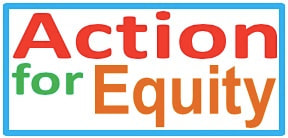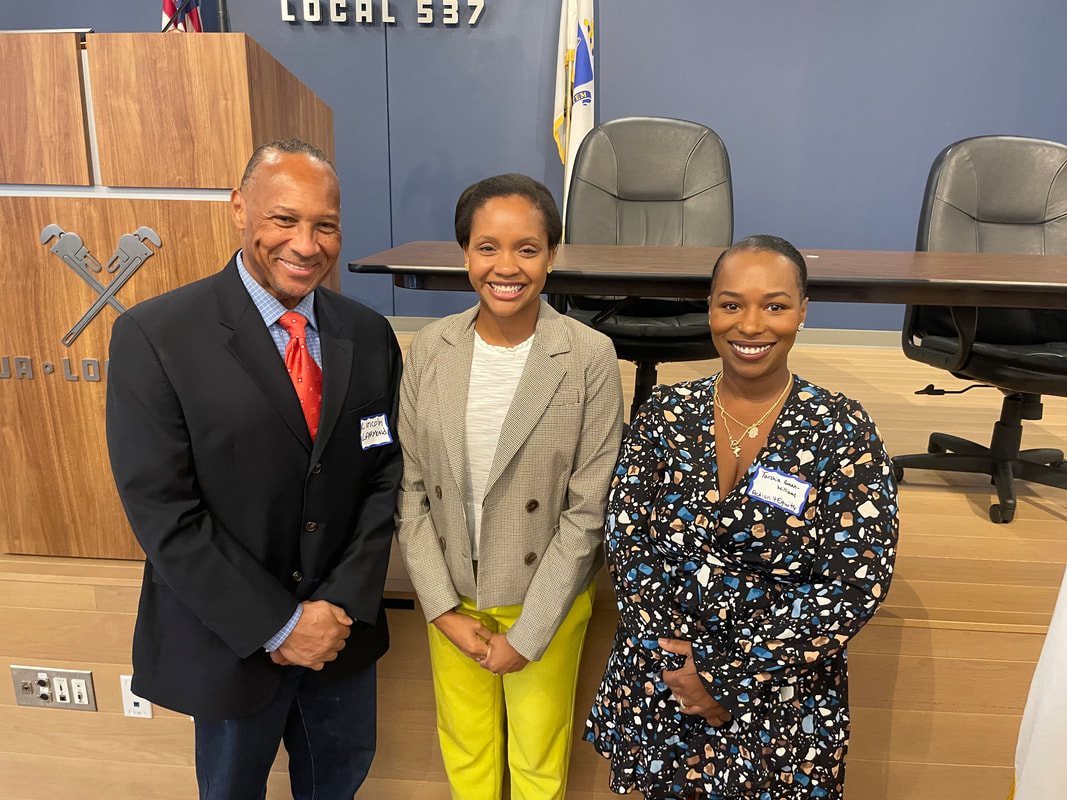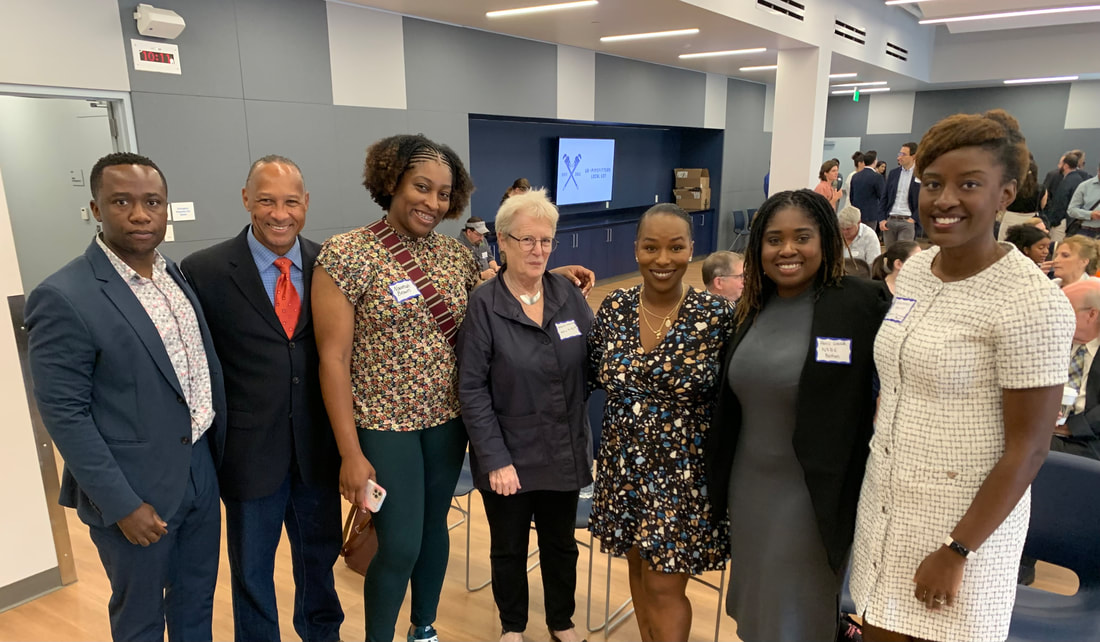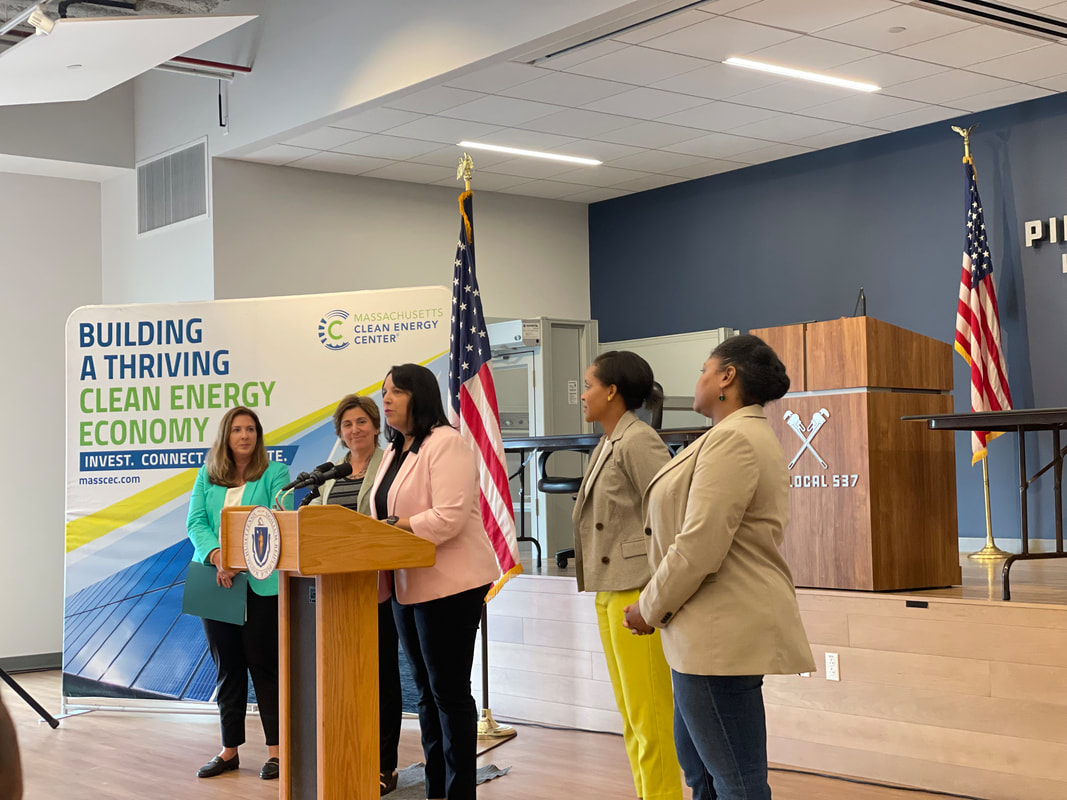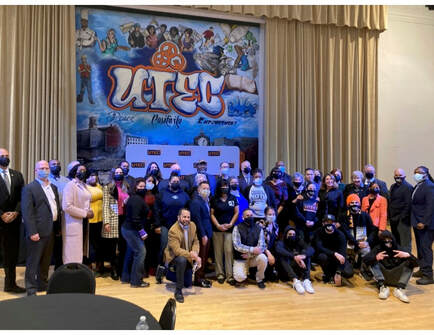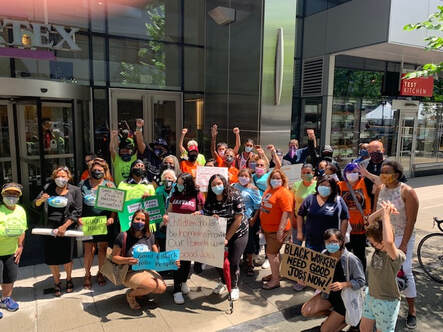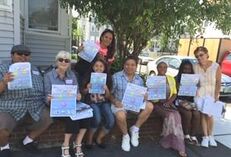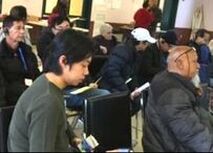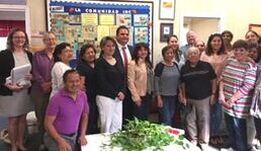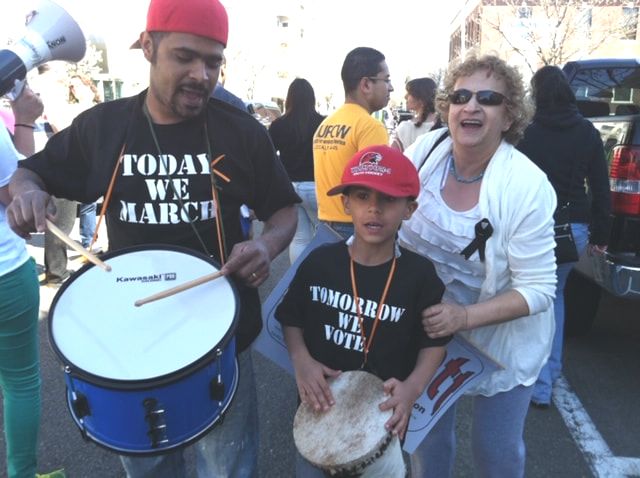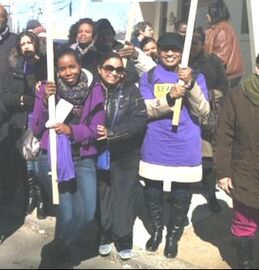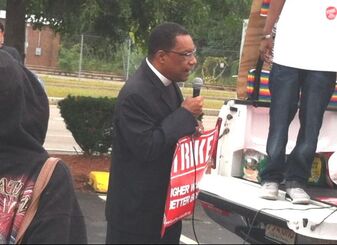Jobs Equity is central to removing structures of racial exclusion and creating new structures of inclusion.
Black, Indigenous, Latinx, and other working adults of color with credentials, transferable skills, and strong labor market attachment, are now tracked into low wage jobs and sectors. The current system is the result of hundreds of years of exclusion structured into the labor market.
85,000 people in Dorchester, Roxbury, Mattapan and Hyde Park have some college or more education. People who are working have transferable skills from their jobs—skills that can be transferred to a better jobs if the connections are made. But while a white Boston resident with a BA has a median wage of $70,678, a Black resident with a BA has a median wage of just $37,771 (data from Boston).
Black, Indigenous, Latinx, and other working adults of color with credentials, transferable skills, and strong labor market attachment, are now tracked into low wage jobs and sectors. The current system is the result of hundreds of years of exclusion structured into the labor market.
85,000 people in Dorchester, Roxbury, Mattapan and Hyde Park have some college or more education. People who are working have transferable skills from their jobs—skills that can be transferred to a better jobs if the connections are made. But while a white Boston resident with a BA has a median wage of $70,678, a Black resident with a BA has a median wage of just $37,771 (data from Boston).
